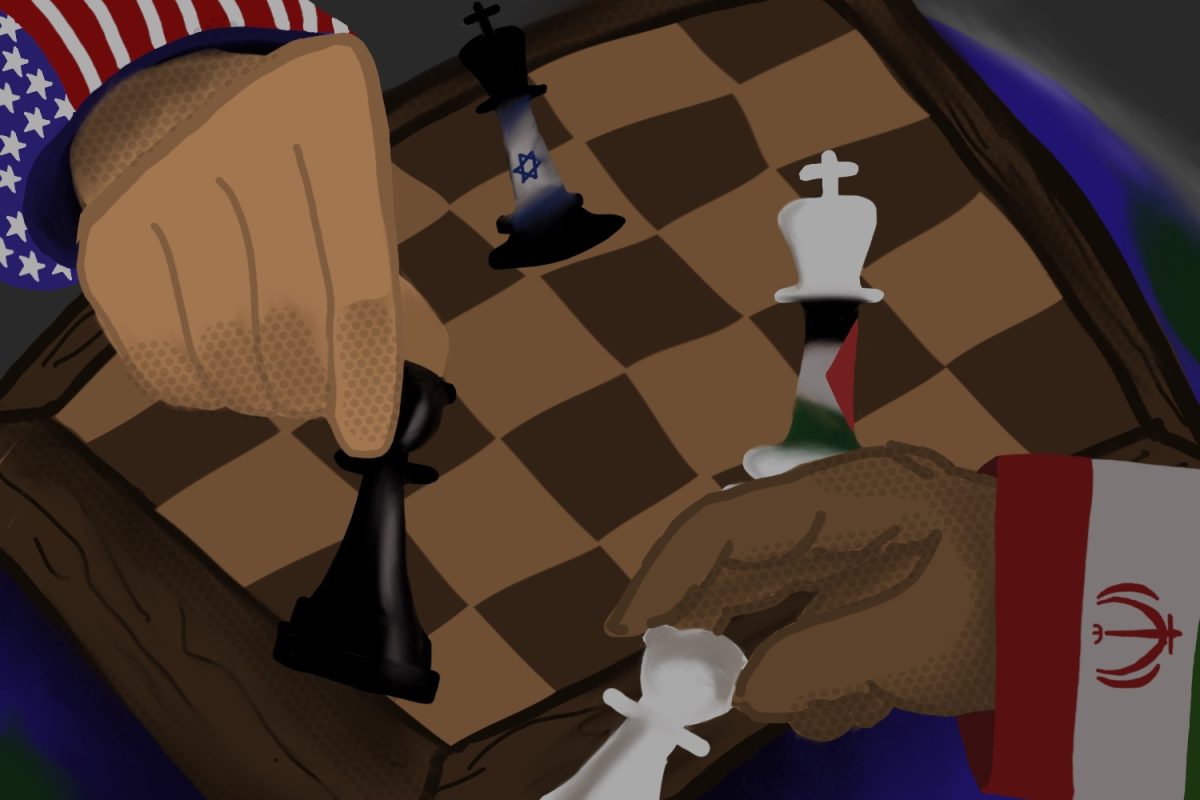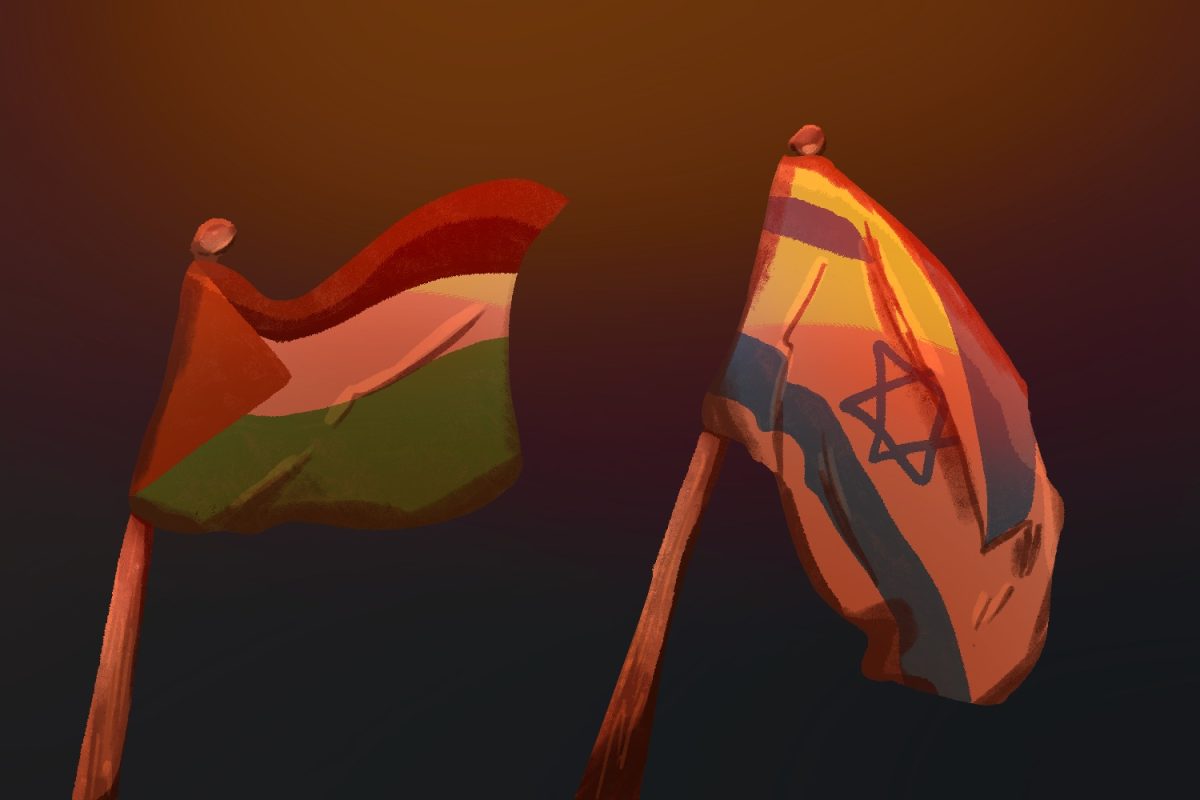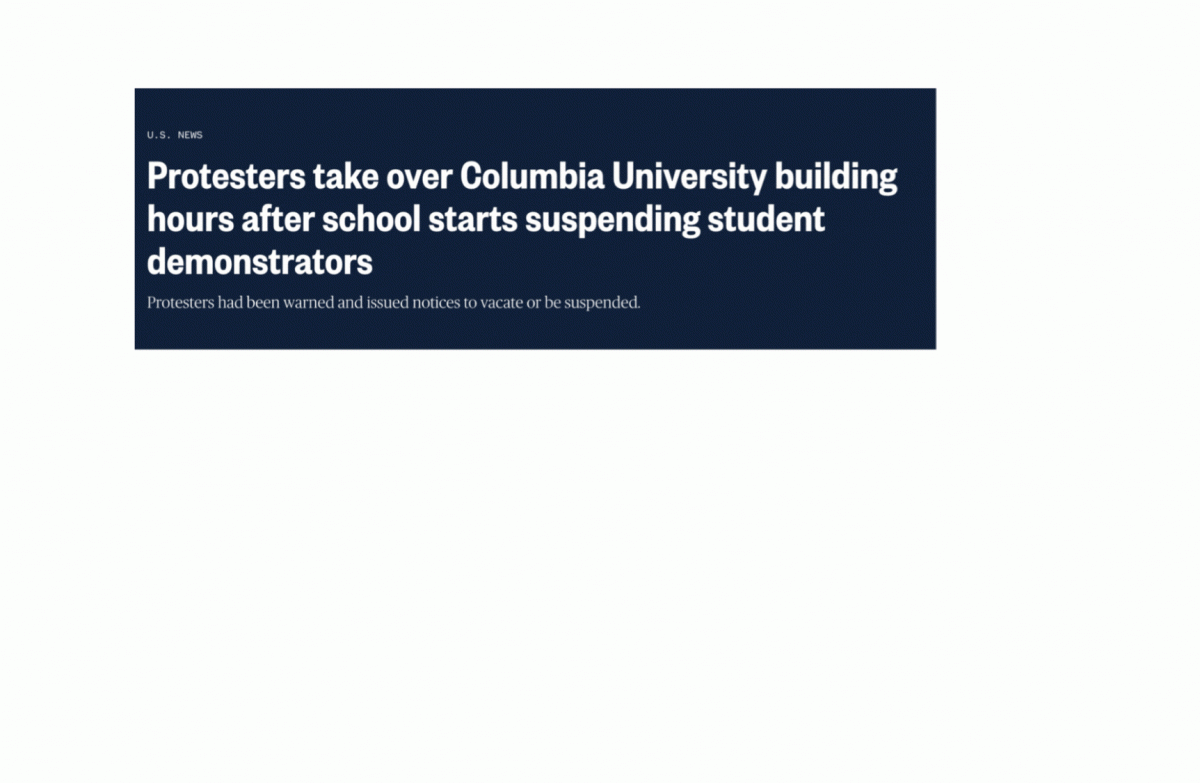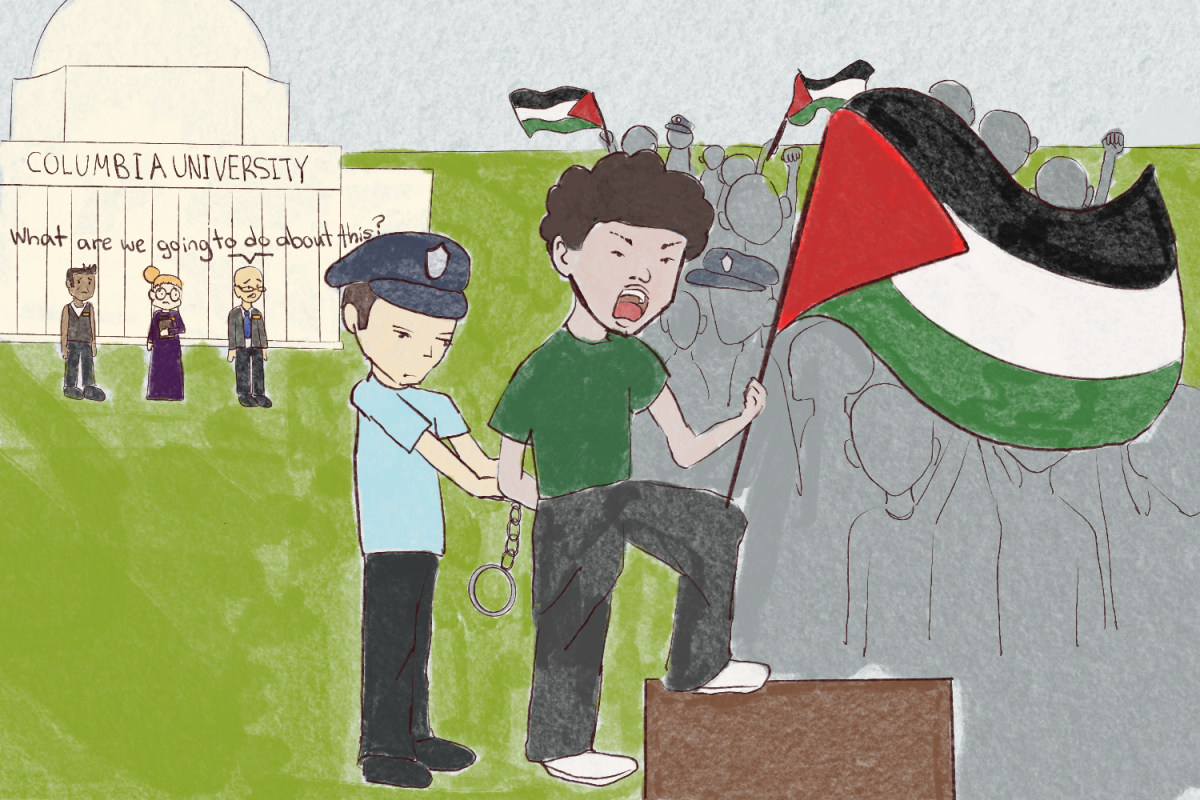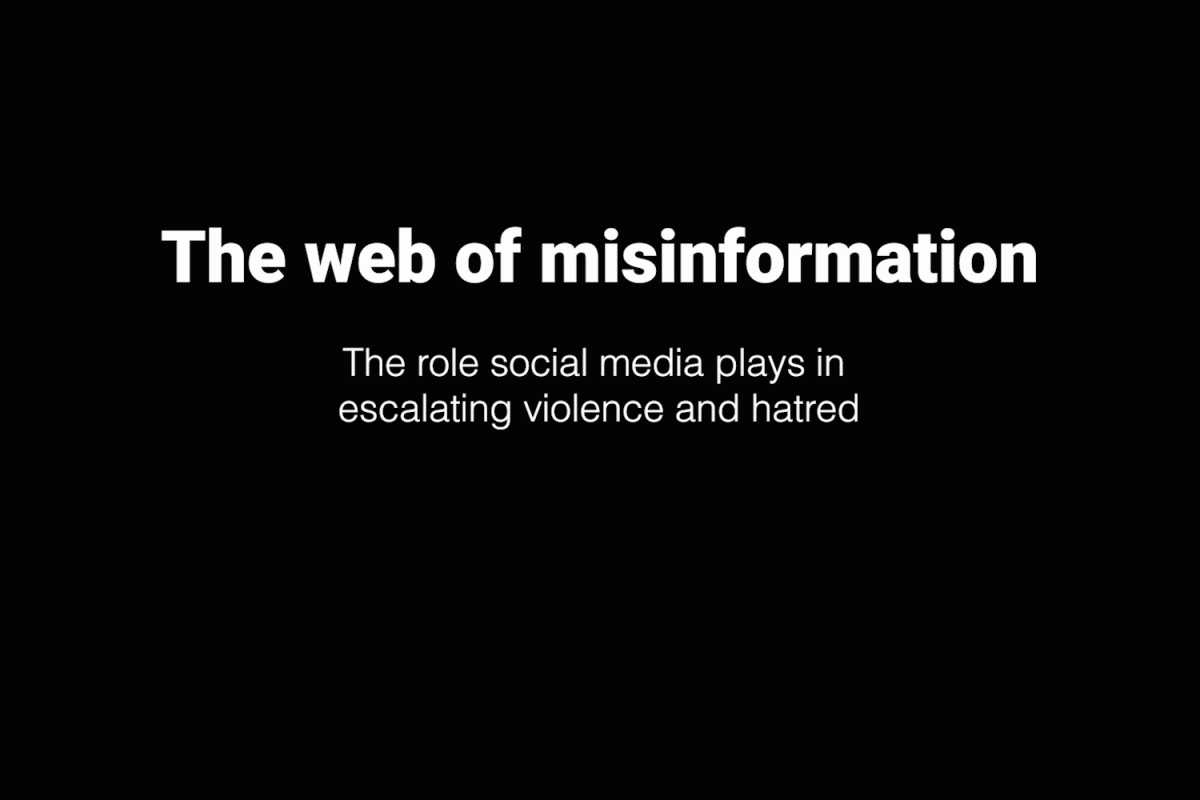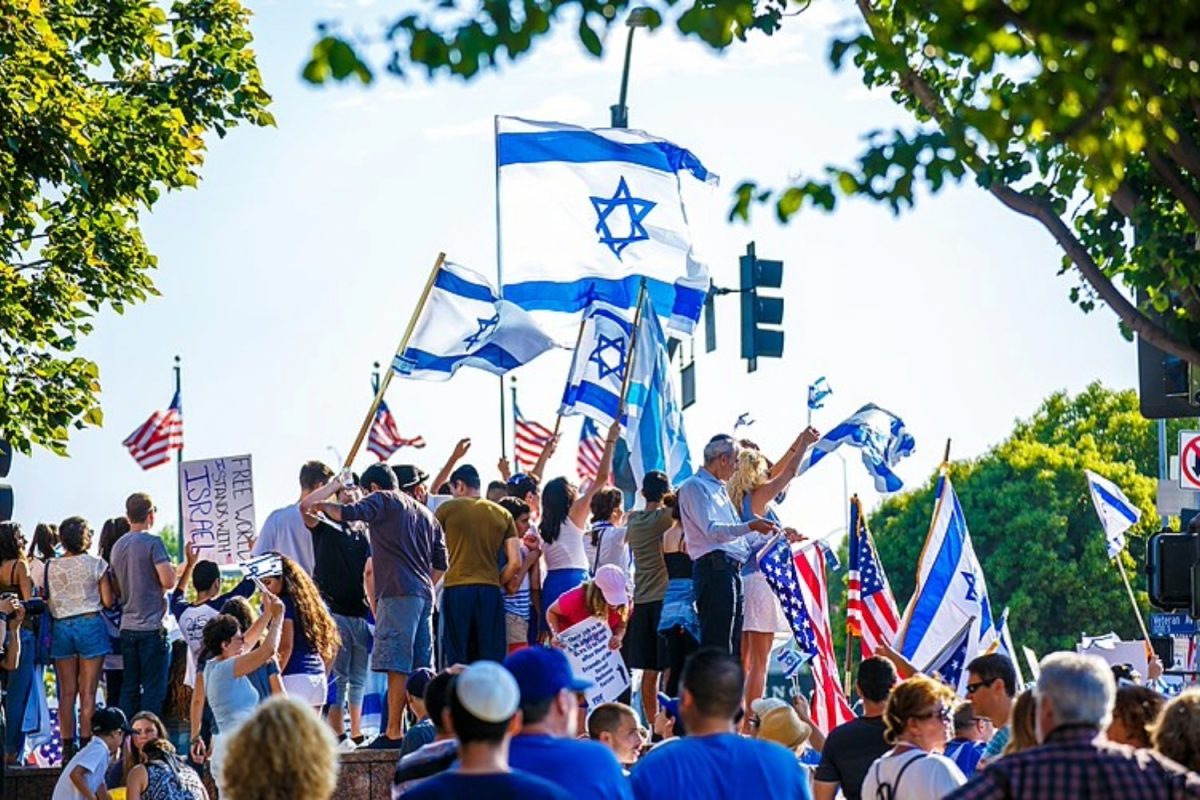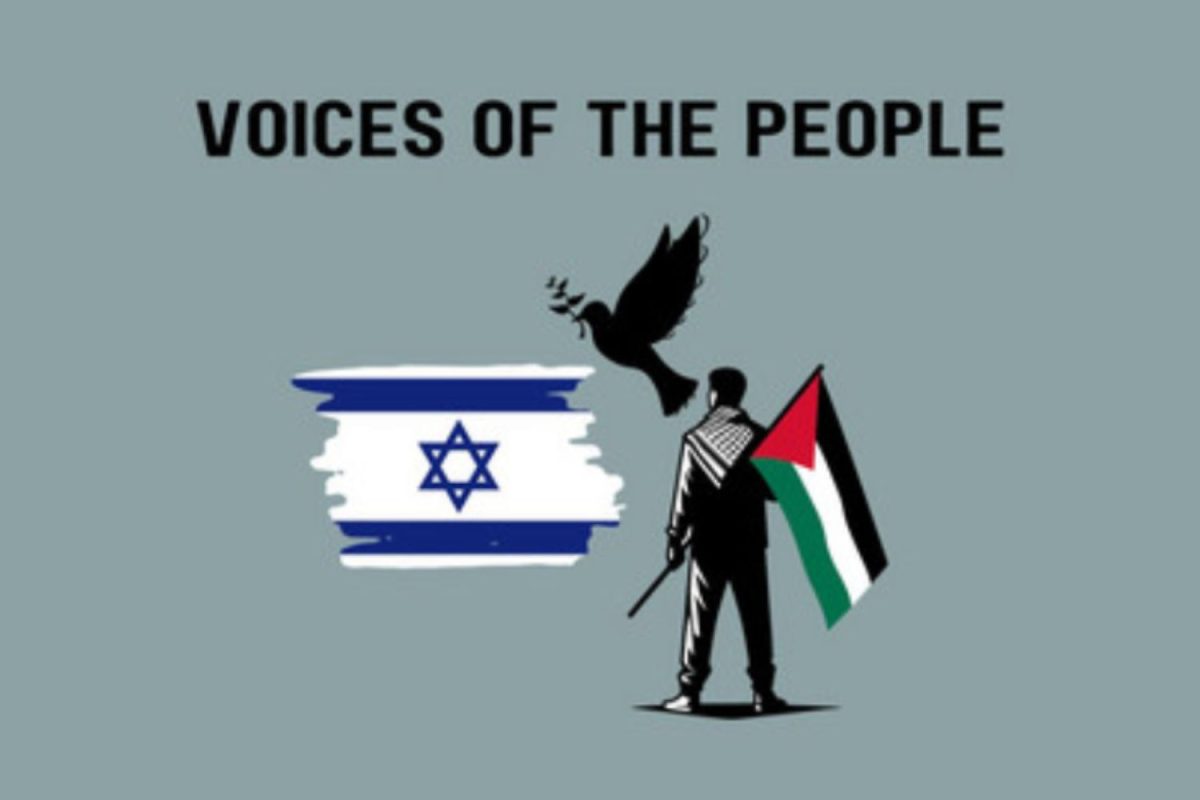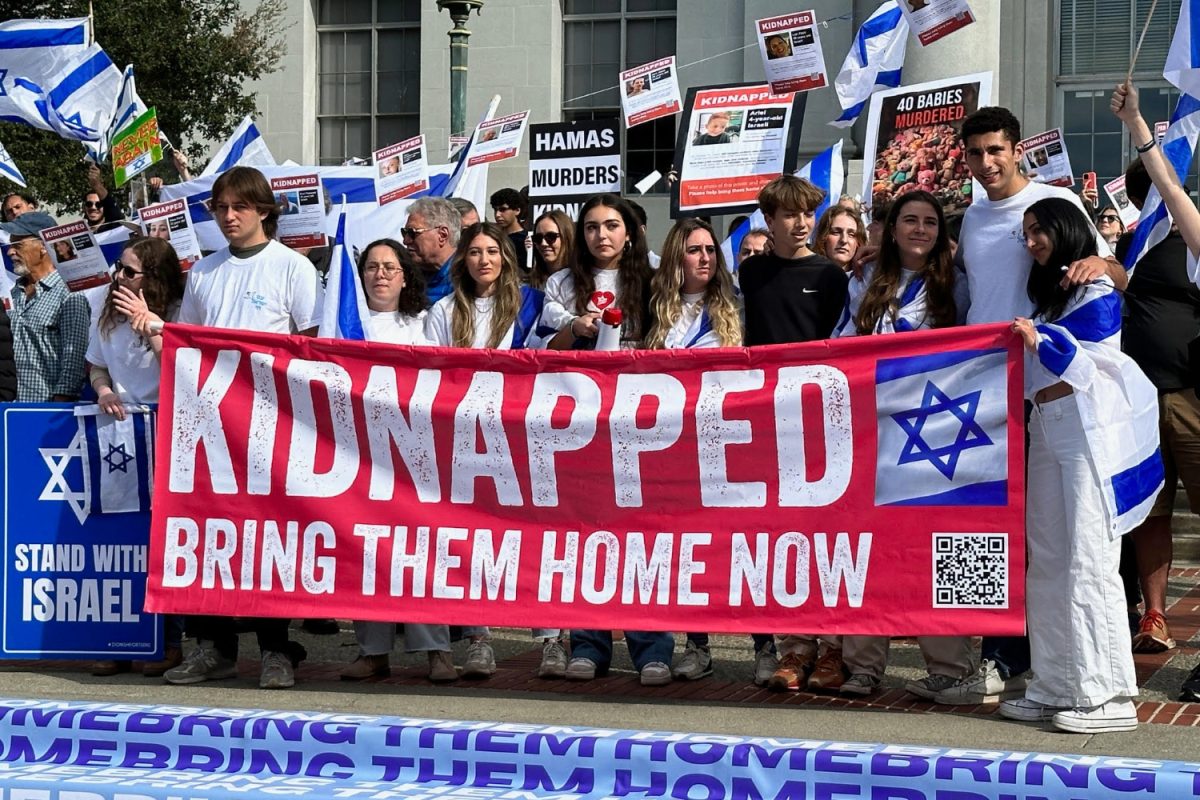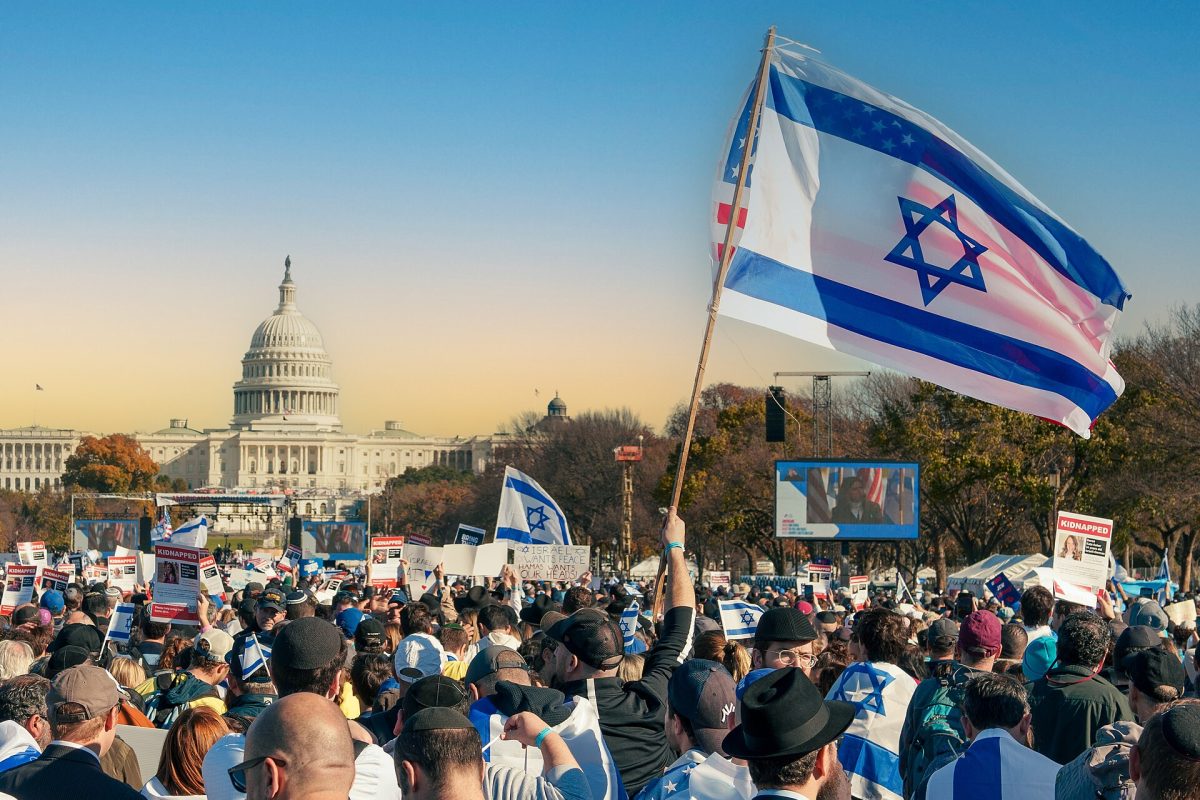As the Israel-Hamas war continues into its second month, the question of international involvement and the extent of participation has been circulating among foreign nations.
The key thing to note is that international involvement has been at the heart of the expansive conflict between Israelis and Palestinians.
The latest war extends from long-term hostilities beginning in 1948, when Britain lost control of Palestine, an area in the Middle East. International nations decided to dedicate part of the territory to Jewish people, the minority at the time. Consequently, Jewish leaders named Israel as a safe area for Jews.
However, for the Arab majority residing in the region, the arrival of Jews and the creation of Israel fueled issues between the groups as both claimed Palestine as their home. World War II exacerbated the conflict because many more Jews began arriving in Palestine to escape the Nazis between 1939 and 1945.
Since 1947, when the U.N. voted to split Palestine into a Jewish state and an Arab state, attempts at peace and a two-state compromise have only succeeded one-sidedly.
“There is no military solution. It’s just going to kill people and destroy buildings. The question has to be resolved politically — either a two-state solution or a one-state solution, but that’s likely not going to happen. The last round of negotiations took place in 2014,” said James Gelvin, a professor of modern Middle Eastern history at the University of California Los Angeles (UCLA).
After a surprise attack by the Palestinian militant political party Hamas on southern Israel in October, Israel declared war, thus turning historical violence between Palestinians and Israelis into the Israel-Hamas war.
To counter Hamas and rescue hostages taken during the previous month’s attack, Israel imposed a blockade on the Gaza Strip, a narrow strip of land between Israel and Egypt.
The blockade and airstrikes on Gaza have prompted serious humanitarian concerns for residents who are increasingly displaced and have limited food, water, and electricity.
While the United States is an ally of Israel and currently sends military support to the country, neighboring countries such as Egypt and Jordan are not keen on the possibility of accepting Palestinian refugees as a result of the displacement of the people in Gaza.
This issue spurs the strain on Israel’s relations with Egypt and Jordan, evident in Israel’s withdrawal of its diplomatic staff from Amman, the capital of Jordan, and Cairo, the capital of Egypt, which will impact the prospects of ending the war and the release of hostages.
“The conflict has always been between Zionist Jewish nationalists and Israelis on the one hand and Palestinians on the other hand. In 1948, when Israel declared its independence and was invaded by Arab armies, most of the world began to look at the conflict as between Israel and its neighbors, Israel and Syria, Israel and Egypt, Israel and Lebanon, and so on,” Gelvin said.
According to Gelvin, Israelis and Palestinians decided to recognize each other in 1993. Israel recognized the Palestine Liberation Organization (PLO) as the organization that would represent the Palestinians in negotiations, and Palestinians, in turn, recognized Israel. But ever since then, it has reverted back to an Israel-Palestine conflict.
“An early example of a conflict was in 1967 when Israel and its neighbors fought the Six-Day War. Israel conquered a huge amount of territory in six days — Sinai Peninsula, Gaza, the West Bank, east Jerusalem, and other areas,” Gelvin said.
As a result, negotiations between Israel and Arab states changed directions. Israel would give back the land that it had conquered, and, in return, the Arab states would make peace with Israel. This idea was cemented into U.N. Resolution 242 and has been the basis for all negotiations ever since.
Despite this, Israelis became hesitant to get into negotiations. However, according to Gelvin, Egyptians who wanted negotiations to resume launched a war — the Yom Kippur War — with the Syrians against Israel in 1973.
“The problem with the war was that they broke through Israeli lines and didn’t know what to do. People compare what happened on Oct. 7 to what happened earlier in 1973. In both instances, Israel was unprepared, and forces that were against them were able to take advantage of that,” Gelvin said.
The war was ultimately an Israeli victory, but not without heavy casualties on both sides.
Now, half a century in the future, the ongoing Israel-Hamas war is creating deeper divisions between Israelis and Palestinians, as well as neighboring countries in support, such as Iran.
“A whole group of countries are in alliance with Iran. Hezbollah, an Islamist group in Lebanon, Hamas in the Gaza Strip, the Houthis in Yemen, and Syria as well. But even though they’re aligned together and tend to work together, they all have their own agendas that they pursue independently,” Gelvin said.
According to Gelvin, what happened on Oct. 7 was an independent operation that only the military wing of Hamas knew about.
“The thing is, these groups are local groups with local interests. U.S. intelligence says that Iran, which was supposedly behind it all, didn’t really know what was going on, and neither did Hezbollah in Lebanon. Hamas kept it secret, and they did it mostly on their own,” Gelvin said.
Now, the fundamental division in the Middle East is between Saudi Arabia and Iran, and each side has its allies. According to Gelvin, Saudi Arabia has most of the Arab world on its side.
The country has been making overtures to Israel for technology, which provides ways of keeping tabs on its own people and outside intelligence, among other things.
“The states that signed the Abraham Accords with Israel several years ago to normalize relations with the United Arab Emirates, such as Bahrain, the island nation, Morocco, and Sudan, are now laying low in Saudi Arabia, which attempted to negotiate with Israel for normalization, but failed. While fundamentally the configuration is the same, we have a realignment taking place within the Arab world,” Gelvin said.
While Saudi Arabia and other Arab nations are experiencing a shift in foreign support, the U.S. alliance with Israel has been resolute.
“We’re completely behind Israel. We want to have humanitarian corridors. For example, we want to stop the bombing for a couple of hours a day to allow convoys to get into Gaza. If we had no relationship with the Israelis because we condemn their activities, then we wouldn’t be able to do that,” Gelvin said.
However, the humanitarian crisis in Gaza and the war overall is upsetting to many Americans like Gelvin.
“I was extraordinarily shocked and horrified by what took place on Oct. 7, but killing 11,000 Palestinians and counting is not going to bring back the dead. I find the idea of egging Israel on to be a real mistake. What the U.S. has to do is stand on the high moral ground like we did during the American Civil Rights Movement,” Gelvin said.
Regarding international involvement, Gelvin sees both merit in its ability to alleviate suffering but also a lack of ability to resolve the issue.
“The Red Cross is involved in hostage negotiations, and the U.N. has been supplying Gaza with assistance. Outside powers can provide money, assistance, and social services, but it’s really up to the principles. If you look at all the successful peace negotiations that have taken place between Israel and Egypt or Israel and Jordan, you’ll see that they succeeded because both sides wanted it. We don’t have that with Israel and the Palestinians,” Gelvin said.
According to Gelvin, the U.S. needs to better understand that there are limits to what it can do, whether it be militarily or diplomatically.
“We didn’t know that at the time, but now we know that Israel is not going to follow American advice. The interesting thing about this whole conflict is that Israel is repeating all the mistakes the United States made after 9/11. Their idea is that all they have to do is remove Hamas, but that’s when your problem starts,” Gelvin said.
It’s not simply removing a military or government without difficulties. According to Gelvin, the issue with removing Hamas is that their territories will be left ungoverned and the people will have no resources.
“It’s a question of understanding that there’s a second day, a day after the invasion, and you have to figure out what you’re going to do then. That was the American lesson from the Iraq War, and the Israelis never learned that. They’ve embarked on the same program that the U.S. embarked on 20 years ago,” Gelvin said.
As an author of a few books on Israel and Palestine, Gelvin believes that the lesson to be learned about Hamas is that deterrence doesn’t work with an organization. It only works with a state. To address this, people need to look at it differently, like reaching a political solution that allows the population of Gaza decides to step up.
“People of Gaza should say, ‘I want peace now. Let’s get rid of Hamas.’ They want to concentrate on doing things like making a living to send their kids to school to do all the things that are absolutely necessary to live a life. Gaza is being held hostage between two forces, one of which is Israel, the other which is Hamas, and neither of them wants to let go,” Gelvin said.
Looking back in history, another factor of the conflict has been colonial rule by international powers, not just regional disputes.
“They were the Ottomans’, then under British rule — this is a part of the world that has always been subject to a lot of regional and global dynamics. More recently, we saw the creation of Israel coming out of World War II and the search for a Jewish homeland. The international community by and large supported that, particularly the great powers that came out of the war like Britain, France, and the United States,” said James Long, a professor of political science at the University of Washington.
Given their historical support and the many Jewish Americans who have emigrated to the U.S., it is no surprise to see similar treatment of Israel by the U.S. and Europe in the current war. According to Long, there are a lot of deep family connections between Jewish and Israeli Americans.
However, neighboring Arab countries do not feel the same way.
According to Long, countries like Egypt have closed their borders to stop Palestinian refugees from coming, and Palestinian refugees who have lived in Jordan are essentially treated as second-class citizens.
“That leaves this big question, which is who supports the Palestinians that are not Hamas? Most of the Arab countries that surround the occupied territories in Gaza hate those Palestinians. That is a real problem — other than the international humanitarian community trying to assist them, there’s nowhere for them to go,” Long said.
Long notes that neighboring countries don’t have obligations to take in refugees either.
“Israel and non-Hamas Palestinians are blocked in by a lot of neighbors that hate them. It’s like a black hole that pulls in a lot of energy from Iran, the U.S., Europe, and Russia, and it’s not doing the people there a lot of good,” Long said.
According to Long, Palestinians don’t have their state party due to the failure of the Palestinian leadership. At the same time, Israel does not feel secure with the ability of Hamas to attack its people from Gaza. For people who don’t live there, Long likens the situation to kicking sand in a sandbox.
“Other countries don’t have to necessarily deal with the consequences of their involvement in the conflict. As a political scientist, I can’t think of a current conflict that is so multi-dimensional,” Long said.
Humanitarian efforts by international organizations are not solely from the U.N., but also from groups such as Doctors Without Borders and the International Organization for Migration.
“A lot of people are frustrated that the U.N. hasn’t been more successful in Gaza, but at the same time, I’m not sure how much more they can do. It’s really sad if you think about it — the people that are caught up in this conflict are the millions of Palestinians who don’t have a way out and Israeli civilians,” Long said.
However, Long believes that the U.S. is playing a critical role in the war through its support of Israel.
“The U.S. is actually getting Israel to limit the amount of damage that they could otherwise do. They’re actively trying to work towards minimizing civilian damage and casualties. If they were not playing that role, Israel might be a little bit more reckless,” Long said.
Currently, many youth voices advocate for support for Palestine and question U.S. support for Israel. However, Long mentions how vital it is to keep in mind that Israel is the only strong ally of the U.S. in that region.
“Part of the reason is that Israel is a democracy, and those other countries aren’t. So it’s in our strategic interests to have a strong friend in the Middle East to stand up to countries that are true threats to the U.S. Sending military support is critical to that,” Long said.
The impacts of military aid have understandably created disputes over U.S. involvement in the war. However, U.S. support through military aid or even sending troops doesn’t always denote action on the battlefield.
Matt Richardson, a former Ranger, Special Forces operator (Green Beret), and veteran of the Gulf War, gave insight into this reality.
“One of the core principles of a Green Beret isn’t necessarily to just go out and kill people. The primary focus of a Green Beret unit is to go into a country where people are oppressed and teach them how to defend themselves. A special forces unit is made up not just of combatants, but also engineers, communication specialists, medics, and more,” Richardson said.
Aside from the variety of specialists in a unit, there are also a variety of tasks a special forces unit may partake in that are not violent in nature.
“At times, it’s just a matter of literally getting your hands dirty teaching people how to grow crops. Sometimes we would show people how to get irrigation to those crops, because sometimes they just don’t have the infrastructure or even the knowledge to do that,” Richardson said.
Even in the current conflict between Israel and Hamas, U.S. troops are present, yet they do not necessarily participate in the fighting.
“They’re mostly support troops. Most are ensuring that armaments and other things being brought over are properly used and stored, and the individuals we are giving them to are properly trained on how to use them,” Richardson said.
Aside from conflict over U.S. involvement, there have also been calls for a cease-fire between Israel and Hamas. However, a cease-fire may not be the simple solution that many believe it is.
“I think a cease-fire is good, but a cease-fire is not peace. In my personal experience, there have been a number of instances where cease-fires were supposedly enacted. However, it was like, ‘well, that’s news to us,’ and bullets were still flying overhead. Cease-fires make great headlines, but they’re rarely practical or effective. It’s obviously a first step to ending conflict and confrontation, but more often than not, cease-fires are brief, temporary, and not obeyed,” Richardson said.
Another detail people must remember is the realities of the different groups involved in this conflict.
“The other problem that I see concerning this war is that a lot of people associate Hamas with Palestine. Not all Palestinians are a member of Hamas. They are only small factions within the population,” Richardson said.
This actuality, in turn, influences some of Richardson’s beliefs on recipients of foreign aid.
“Do I believe that Israelis should be getting foreign aid? Yes. Do I believe Palestinians should be getting foreign aid? Yes. Do I believe Hamas should be getting foreign aid? No. But there’s also a massive distortion about what’s really occurring over there, and that’s incredibly frustrating,” Richardson said.
Nevertheless, Gelvin believes that a crucial step forward is to view the Israel-Palestine conflict as a critical moral issue of the present.
“It doesn’t mean the destruction of Israel. It doesn’t mean that extremists in Gaza get to run free. But it does mean that Palestinian rights should be understood and taken as valid,” Gelvin said.

